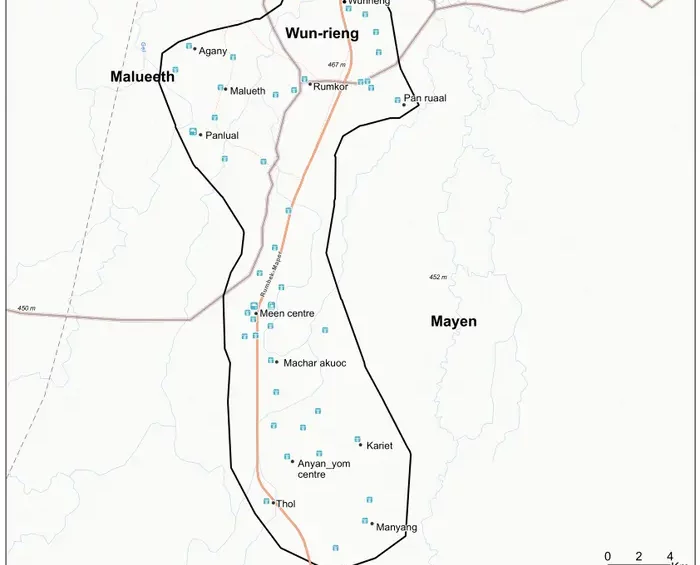
War veterans march during the declaration of Independence Day celebrations at Dr. John Garang Mausoleum in Juba on July, 9, 2011.
A study conducted by Dr. Michael Deng, a clinical psychologist at the Chaplaincy Corps, has found that over 78 percent of South Sudan’s veterans and ex-combatants face significant mental health challenges, but their needs have largely been overlooked.
Speaking at the launch of the South Sudan Mental Health and Psychosocial Support Strategic Plan 2025–2029 in Juba on Friday, Dr. Michael Deng said a study he conducted last year at the Ministry of Defence revealed high rates of post-traumatic stress disorder (PTSD), anxiety, and depression among former and active service members.
“The study we did was in the Ministry of Defence, looking at post-traumatic disorder and anxiety among ex-combatants and veterans,” Dr. Deng said. “The report indicated that over 78 percent of our men in uniform have mental health needs, and they are neglected.”
The research, conducted as part of Dr. Deng’s PhD studies at an Italian university, involved more than 1,000 participants, including over 500 respondents in 2024.
According to the findings, 79 percent of male participants and 21 percent of female participants reported symptoms of mental health disorders linked to their service and exposure to conflict.
Dr. Deng urged the Ministry of Health to include the Ministry of Defence in the national mental health strategy and ensure services reach military personnel and veterans.
“The Ministry of Defence is part and parcel of this country—especially our men in uniform. These are our brothers and sisters. After service, they go back to the community and they are always with the community,” he said.
“We should make sure that we extend mental health, psychosocial support, and clinical services to support the men in uniform.”
He also called on the government to train specialized personnel better to manage mental health conditions within the armed forces.
“In the Chaplaincy Corps, we have a department of counseling that deals with psychosocial support for men who are injured in the field,” he said.
“In Giada Hospital, we have a lot of people who are traumatized because of the wars that are being fought here and there. Men in uniform have sacrificed themselves to protect this country, and they have mental needs that must be taken care of—whether by families, institutions, or the agencies present here.”
Dr. Deng specifically appealed to the Ministry of Health to support the Health Services Directorate within the Ministry of Defence and the military hospital.
“I’m requesting the Ministry of Health to make sure that the military hospital is supported,” he said. “I’m only seeing ICRC always coming there to support, but we need full support for that department. We need training of mental health counsellors, psychosocial support officers, and psychiatrists.”
Also speaking at the event, National Minister of Health Sarah Cleto Rial said the government is committed to making mental health care a national priority.
“The first pillar is the integration of mental health into primary health care,” Rial said. “We are going to prioritize training of mental health workers, psychologists, counselors, and community health workers.”
She added that the plan also includes fighting stigma, improving mental health literacy, expanding trauma services—especially in humanitarian settings—and advocating for government budget allocations.
“We’ll have to engage our community through awareness, fighting stigma, increasing mental health literacy,” Rial said. “More important is policy, financing, and sustainability. We will be advocating for government budget allocations and, of course, partner support.”
Minister Rial called on development partners, academic institutions, and media organizations to support the plan’s implementation and ensure it reaches marginalized communities.
The Mental Health and Psychosocial Support Strategic Plan 2025–2029, launched under the theme “Access to Mental Health Services During Crises and Emergencies,” sets out a national framework to expand mental health services, improve trauma care, and ensure long-term sustainability.
The plan marks a major step toward building a more inclusive and resilient health system in South Sudan.












